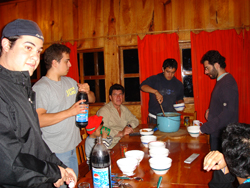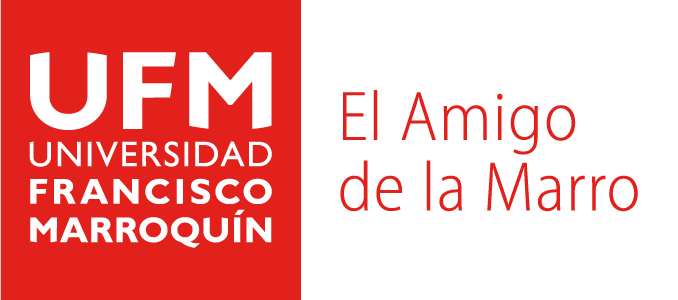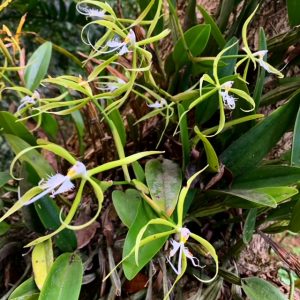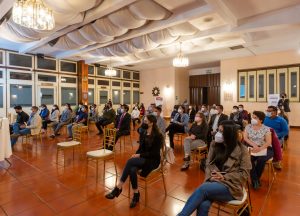 |
| Andrés Marroquín, sixth from left to right, with a group of students in Chajul. They were accompanied by a local child and Arturo Krolic, third and fourth in the usual order. |
With the purpose of having students talking with people outside the classroom and to get acquainted with new options and different life styles, students from the course of Ethnography and Fieldwork, at the School of Economic Sciences of Universidad Francisco Marroquín, visited Chajúl, in Quiche’, during the weekend of June 9th of 2007.
«In the course of ethnography and field trips our principal goal is that students talk with people outside their classrooms. I believe that when we visit people in their homes, or where they work, we get clearer ideas about their way of life and their options», explained doctor Andrés Marroquín, professor of the course.
«On our first trip we went to Chajul, Quiche’. This county was part of the Ixchil triangle and was severely affected by the armed conflict; still it has many cultural aspects that are mixed with the economic world. For that reason, in Chajul we focused on studying cultural aspects that affect the economic area, or economic aspects that have repercussions in their culture», he added.
«The students talked with the settlers; for example, with indigenous women while they cooked tamalitos, cooked maize, or they ground Chile for chirmol. My students talked about the migrations of people from Chajul to the capital city and the United States; also about the way settlers solve conflicts (sometimes through lynching), and about the use of traditional clothes. For example some students concluded that the traditional suit was left by men due to economic reasons; nevertheless, the fact that women still use it puts this theory in doubt. I believe that informal conversations that arise, generally on controversial subjects such as abortion, policies of economic development, among many others, are the most valuable lessons in these trips», he concluded.
«We stayed at the Inn Asociación Chajulense. Students could observe enough of our countries rural reality, simultaneously they were able to make comparisons between the towns that we passed by and the effect that the market has made in their culture and the development of these communities», explained Cristina Galindo, assistant Professor of the course.
«Our trip to Chajul contributed to the generation of a pure and sincere debate on our different ways of viewing the world and the relation of economic theory with cultural factors of a community; as well as to diminish the breach between both aspects, but simultaneously applicable to the national reality», student Manolo Estrada said.
«In terms of perceptions, most of us shared the same one before arriving: Chajul as a very remote and economically slow town; but we found a town with a good amount of Spanish speakers and a growing economy due to road constructions», added Gustavo Molina.
«We had a great opportunity speaking with people, knowing their culture, their problems and ambitions. We were lucky to enjoy the availability of many villagers who invited us to their houses and told us outrageous anecdotes», explained Rodrigo de Paz.
More photos,
here.
Recientes
- 1
- 2
- 3
- …
- 1.541
- Siguiente »



